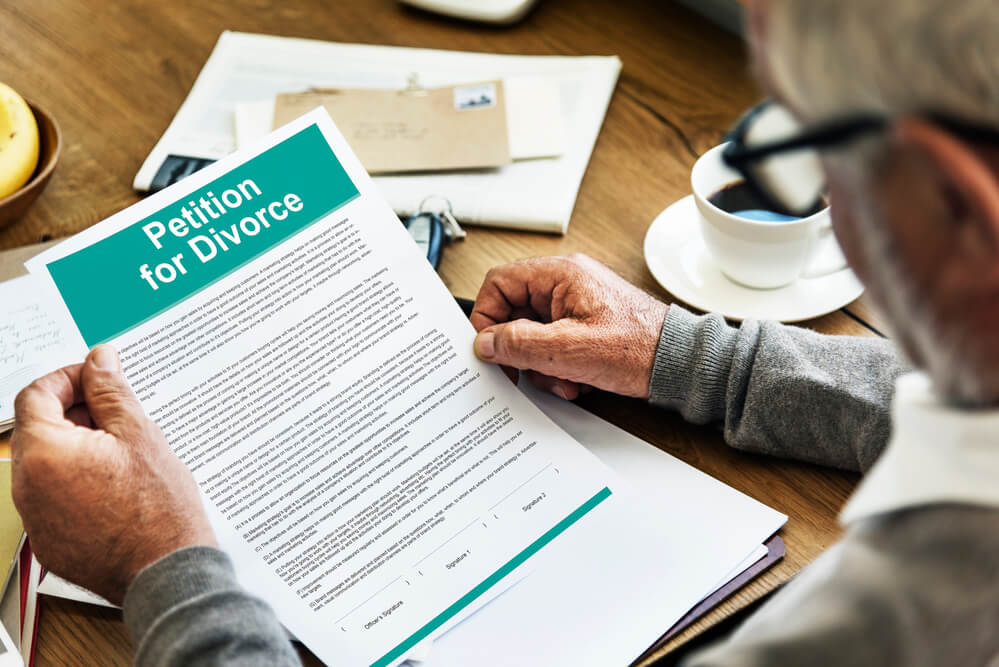Christopher Bruce (00:00):
Hi everyone. My name’s Christopher Bruce. I’m a divorce lawyer in South Florida and today I have the absolute pleasure of being joined by Mona Nassar. Mona is a psychotherapist in the West Palm Beach area that I’ve had the personal opportunity to know now for quite a few years. She leads a group practice nearby and she’s made the time gracefully to speak to us today about how to holistically eliminate anxiety and depression and divorce or other hard times, which is a topic that I think is crucially important for people going through divorce or many of those similar just difficult life events. So Mona, thank you for joining us. And maybe before we get into the topic, just tell people briefly who you are and how you came to be talking about all this today.
Mona Nasser (00:51):
Thank you. Well, I studied at Palm Beach Atlantic University and I got my master’s in counseling psychology. I went on to found a counseling center within a large organization and did that for nearly 20 years and have since opened a group practice in downtown West Palm Beach. And I have an amazing team of psychotherapists that serve Palm Beach County serve the community in the various areas of specialty that they do,
Christopher Bruce (01:25):
And I can certainly vouch for that. You have a great team over there. They’re very much present in a lot of our community events, both giving back to the community and doing very good work for it. So thank you and to your colleagues for all of that.
Mona Nasser (01:43):
Thank
Christopher Bruce (01:43):
Mona, before we get into I guess how to maybe eliminate anxiety and depression and divorce or some of the other hard times, if you could just for a moment help our viewers and listeners understand, I mean, what are the signs of anxiety and depression? Because I don’t know that everybody really knows when those things are rearing their ugly heads and in somebody’s life,
Mona Nasser (02:21):
Fear is so common in divorce because as human beings we much prefer the known. And in divorce, there’s so much that’s unknown and it’s very fear provoking. So they may experience sleeplessness, they may experience various somatic symptoms like tightness in the chest or heart palpitations or the feeling that they can’t breathe properly. They could have sweaty palms, they could have that sense of fight or flight sensing in their bodies that there’s imminent danger all through the process of divorce. It is considered something quite traumatic to be going through. It’s one of the hardest things in life to process through.
Christopher Bruce (03:24):
Just did you see just with the clients of your practice and your colleagues or maybe just from your knowledge of everything involved with this, are there times during the typical divorce process to where somebody’s more likely to experience some depression or anxiety?
Mona Nasser (03:46):
We do see it quite often that the folks that come in to see us are struggling with depression and anxiety as a result of pending divorce or the possibility of divorce and what it’s going to mean for themselves, both relationally, financially, what it’s going to mean also for their children. The unknown of the future is quite anxiety provoking throughout and even post post-divorce, the process of developing a new normal and a new rhythm of life can be quite anxiety provoking.
Christopher Bruce (04:29):
I definitely see it with my clients is I know you do with yours. So Mona, we’ve talked about what anxiety and depression are and how they are prevalent really through all stages of the divorce process and even after for a lot of people. But what are the best ways from your perspective to in a holistic manner, try to eliminate or avoid anxiety and depression during the divorce process?
Mona Nasser (05:22):
Yes, that’s a great question. And I feel very passionate about helping people to be freed of what can be quite debilitating with anxiety. And I really look at it from a very holistic approach. Everything from getting morning sunlight, 10 to 20 minutes into the eyes, not a hard stare to hurt yourself, but definitely direct sunlight, no sunglasses, and it can’t happen through a window. A bright light first thing in the morning helps to set circadian rhythm and the significance of that is the quality of sleep you’ll have later on in the day. Another thing that we recommend to folks that struggle with anxiety and depression is the avoidance of caffeine. It is true that maybe one cup of coffee can optimize a workout and help with cognition or focus, but really more than that, one cup would be not advised for someone struggling with anxiety and depression.
Mona Nasser (06:36):
Additionally not to have caffeine past the noon hour. So if someone sleeps at 10 o’clock, we don’t want to consume caffeine for 10 hours before bedtime. So if they sleep at 10:00 PM at night, they wouldn’t consume caffeine past 12 noon. Additionally, exercise is one of the most underutilized antidepressants. It’s incredibly useful in regulating hormones and mood and a sense of wellbeing. So exercise at least 20 minutes each day that we say 150 minutes in the course of the week is an incredible deterrent and treatment for depression and anxiety, sleep is so very important. So what we recommend is the lights in our homes should really mimic the lights outside. So at nighttime we don’t really want to flip on bright lights in the house. We want the lights in our home to be dimm and calming just like the setting sun. And if you’re able to get the setting sun’s light into your eyes, that’s very beneficial as well.
Mona Nasser (07:59):
There’s the practice of N SS D r Nons sleep, deep rest midday. It takes only 10 minutes and we consider it a nervous system reset. I do it myself. It’s a non-negotiable every single day. Nons sleep, deep breath, you can get it for free on YouTube, and it is just 10 minutes of a restful meditation and it really resets the nervous system and is very, very calming. So N S D R is another recommendation we have for anyone that’s struggling with something like divorce or really any circumstance that’s causing them to feel anxious and depressed. There’s also supplementation that’s very useful. One of the common things that someone experiences is difficulty either falling asleep or staying asleep if they’re struggling with their sleep rhythm. There is the consideration of supplementation. We don’t recommend melatonin because there are lots of science out there that it does cause our brain to stop producing what it should produce on its own. So we don’t want to train our brain to not produce that very necessary hormone that brings about restful sleep. But there are some supplementation like epigenic, which is an extract of chamomile that is recommended. Also magnesium. Magnesium is very, very powerful to bring calm, to bring restfulness, and to allow us to sleep deeply so that we can wake up feeling rested. The other supplement, oh, just slipped my mind. Sorry, hold on.
Christopher Bruce (10:05):
I write these down. I was like, oh man, I had some melatonin last night.
Mona Nasser (10:09):
Melatonin is actually not good. Not good for us. Yeah, it disrupts hormones. It’s an endocrine disruptor, it’s a hormone disruptor, and we don’t want to train our brains see children. Is this off the thingy or it
Christopher Bruce (10:25):
Doesn’t matter? Yeah, it can be off or
Mona Nasser (10:28):
It could be on or off. It doesn’t matter. But I’m really just talking to you, but I don’t want to spend the whole time dissing melatonin.
Christopher Bruce (10:36):
Yeah, I know. You could probably better to get back into whatever.
Mona Nasser (10:40):
Oh, okay. So anyway, melatonin used to be, the wisdom would be to take it. Now all the experts say please don’t. The third supplement that is recommended to take is theanine. And theanine is the contributor in sort of that dynamic trio that brings about a restful and calm sleep. So those are some behavioral protocols that we recommend. They’re free to do, they’re relatively easy to do and to incorporate into a rhythm of life. And then there is the protocol of recognizing internal dialogue. So most of us know how we feel, we also know how we behave. So we may know that we cried or we cry easily or we’re impatient and snap, or maybe we sleep too much or not enough or eat too much or not enough. Okay. Sorry, I lost my train of thought, but I can just pick it back up.
Mona Nasser (11:58):
Oh yeah, that’s okay. So we’re aware of how we feel and we’re aware of how we behave, but what actually creates both how we feel and how we behave is our internal dialogue, that internal tape playing our self-talk. And so one thing that we teach as cognitive behaviorists, as well as other modalities, but this particular one treats anxiety and depression so successfully is called cognitive behavioral therapy. And it’s where we teach the person to be aware of what their self-talk is, what is their internal dialogue, which is creating their emotions and their behavior, what they decide to do or don’t do, the risks they’ll take or whether or not they recoil from life, whether they feel courageous or whether they feel paralyzed by fear, all comes from internal dialogue. So C B T is a very powerful modality that happens in the therapeutic setting, in the counseling environment, and that’s one of our specialties at restoring hope.
Christopher Bruce (13:13):
Well, Mona, really, that’s an amazing answer. I think there’s a lot to take away from what you just said. One thing I did want to ask you to maybe supplement onto that, for those of the listeners that are taking this all in that aren’t going through the divorce themselves, but know somebody else who is, maybe it’s a close family member, a child, maybe there’s some therapists and attorneys listening to this that want to make sure their client is supported in the best way possible. Do you have any maybe extra tips or things that those supporting family members or professionals should just take into account to better help a loved one or client who’s going through maybe a difficult divorce and grappling with the feelings of anxiety and depression?
Mona Nasser (14:10):
Yes. I think that one of the common things that exacerbate the situation when we’re going through difficulties like divorce is the feeling of isolation, feeling alone in and through it. So I think that we can offer such great support by helping the person to know that we’re there for them, that they’re in safe space, that we can offer a listening ear. So many people just don’t feel heard. They don’t feel heard, and they don’t feel understood. So as friends or loved ones witnessing those going through difficulties like divorce, we can offer empathy, help them to feel heard, offer empathy, and keep in contact with them, reach out, whether it’s in person or text or a phone call. Sometimes that can make all the difference just to know that that person has you as a support through such a difficult time. Additionally, helping them to know that it does get better, that this time will pass and it does get better. I think also, I mean, sorry, I was going to,
Christopher Bruce (15:44):
No, sorry about that. We’ll edit this out. You can go with, I think also
Mona Nasser (15:50):
I think also that well shoot, I’m not quite sure how to say this. Maybe you can help me know how to say
Christopher Bruce (15:58):
This. Oh, sure, sure.
Mona Nasser (16:02):
What I kind of want to say is one of the best things we can do for them is to get ’em outside, help them change their state, be active exercise together. I’m not quite sure how to say that or maybe I should
Christopher Bruce (16:16):
Say it. Yeah, you could say something like, I think also if you have somebody that you know or you’re working with as a client that’s going through this type of stuff, based on the level of your relationship as appropriate, try to encourage them to be active, to change their pattern, get outside to be in that morning sunlight. If it’s a family member, maybe go for a walk with ’em in the morning. If you’re their lawyer, tell ’em to join a gym. You know what I mean? You can probably filter it that way.
Mona Nasser (16:49):
Yes. I think additionally, what we can do to support our loved ones that are going through divorce or any other difficult time and struggling with anxiety and depression is to encourage them to get outside, to breathe fresh air to ground in the earth, to be active in receiving that morning sunlight that afternoon or evening sunlight. Exercise is so very important. Movement is so very important, and studies do show that there’s a greater benefit to doing it outside if we can. And also doing it in community if we can, which is another encouragement that we can offer those folks, is to not be alone in this, to create that social support that they need. Join that group, join that gym, go to that event, really disallow the isolation to set in. Push through that knowing that it will get better and that support can make all the difference.
Christopher Bruce (17:57):
So Mona, just as a follow up to what we were just talking about, I mean, I had a quest question, maybe this is you consulting for my law practice here, but we see a lot of clients in the divorce that they end up, it’s almost like they start trying to predict the future in a negative way. They’re going way past where we’re at and kind of predicting doom and gloom. And I don’t know if I’m phrasing all this right, but we see it happen with people and we really appreciate any of your input on how we can work with our clients to maybe change the way they’re framing their thoughts because counterproductive to them from our firm’s perspective.
Mona Nasser (18:44):
Yes. And it’s definitely anxiety provoking and depressive from a psychological perspective. It’s often that someone going through such a trauma and such a difficult time like divorce, they indulge catastrophic thinking. So they have these what if thoughts, and rather than playing the movie forward successfully, people with anxiety and depression, what if the thought in doom and gloom, so they imagine a catastrophic ending endings of loss less or never. And of course that will create lots of fear and lots of regret and depression. So what if thinking is a common pattern of thought? Catastrophic thinking is a common pattern of thought and even scary, obsessive thoughts where they find themselves ruminating over the same thought again and again and again and playing it out and really kind of what we call suffering in advance. So one of the things that I do as a psychotherapist in cognitive behavioral work is I teach the client how to identify the scary thought.
Mona Nasser (20:11):
We know how they’re feeling, they’re feeling fearful, they’re feeling panicked, they’re feeling sad, they’re feeling worried, but there’s a thought that’s creating those feelings. So I teach them how to identify the thought and then to replace it with what I call the three Rs, what’s rational, what’s reasonable, and what’s realistic. And those cognitions or thoughts create a totally different set of emotions like freedom or calm or peace or empowerment or courage. And those are the emotions that we all want to be driven by. So the identification of the scary thought and the replacement of that thought with the three Rs is very, very important and in fact necessary to overcoming anxiety and depression.
Christopher Bruce (21:10):
That sounds like a great tip there. And I mean this might be the part just when we do these recordings, I try to have my team listen to the certain parts of them. And I think that’s one of the parts that just us as a law firm would benefit most from being able to do to our clients. And I think people going through this type of situation would is as well. I think what you’re talking about is fascinating. I saw presentation once by a therapist in Missouri named Jason Silk, and he was always try to boil things down to when you get that negative one thing you can do now to make the situation better. And I think you’re maybe saying kind of a similar philosophy and maybe a way that’s just a little more practical for most people to understand. And I think that’s just amazing advice.
Mona Nasser (22:05):
Yes, it’s not only necessary, but it’s quite powerful to silence the negative scary thought. If we don’t, it will continue to swim around in their head and it becomes a slow brew. And that slow brew can culminate even in panic attacks. So it’s a very powerful tool. It’s a very necessary tool to identify the thoughts. We don’t want to just thought stop, and we don’t want to sweep those thoughts under the rug or distract ourselves because we can busy ourselves and until we fall asleep at night. But those thoughts are still swimming around in our heads and sometimes that’s what we can attribute to those middle of the night panic attacks or waking up with heart palpitations or feeling that pit in our belly. It’s super important to look at those scary thoughts, head on, identify them, and then what I call slay them with at least five to seven full positive statements of what’s rational, reasonable, and realistic.
Christopher Bruce (23:14):
Well, the three Rs I think people take away anything it should be that now, Mona, your practice, I know all about it and know some of your clinicians that work with you personally, myself, but just for the people that are listening to this and they’re saying, Hey, I mean Mona might have a point here with some of this, maybe she can help me or her practice, can maybe just speak for a minute about what your practice does, the types of matters that you all are the best at helping people with, and just maybe the geographic reach so people understand what y’all do, how to get in touch with you if it might be potentially a good fit.
Mona Nasser (23:59):
Thank you. I’m so proud of my team. We each have a variety of specialties that makes us quite unique and complimentary to one another from dealing with addictions and personality challenges to marriage and family. We also work with eating disorders and various other anxiety disorders, depressive disorders. And so we really offer a variety of types of help and we have lots of tools in the toolbox so that we meet the client where they’re at and at their point of need. And so I think the other thing that sets us apart is how much we care. We actually care very much we come to love our clients and we work very hard to help them to be set free, to live their best lives and to move toward the goals that collaboratively we’ve determined is best for them, their goals. So it’s our joy to serve the community in the way that we do. And we are centrally located in Palm Beach County. We are in downtown West Palm Beach. And so we have clients coming from Boca and all the way down to Stewart, so we feel up to Stewart I should say. So we feel very, very proud of our team and the work that we’re doing in Palm Beach County.
Christopher Bruce (25:44):
And do any of your clinicians, they do the telehealth or the, I guess FaceTime type therapy? I know it’s more complicated than that, but the steps so that people don’t have to travel to the office?
Mona Nasser (25:57):
Yes, we do see people via telehealth. So for those that are more comfortable or even it’s just maybe more convenient for them, we do see people remotely via telehealth and it does not lose any amount of efficacy in using telehealth. So that is something that we do offer at our practice. And of course in-person sessions as well, which is really highly beneficial for couples, the in-person work.
Christopher Bruce (26:28):
So Mona, for the people who are watching this on video, they’ll have your information and practice website up on the screen. But maybe just one more time before we go, if you could just tell the listeners the name of your practice, the website and the phone number to use to reach out. I think probably be a few people that would really like that information.
Mona Nasser (26:48):
Thank you. We’re restoring hope of the palm beaches and our website is restoring hope of the palm beaches.com. Our phone number is (561) 309-3188 and we are centrally located in West Palm Beach. So we have happy clients all the way from Stewart to Boca. And again, the phone number is (561) 309-3188.
Christopher Bruce (27:16):
Well thank you so much, Mona. Again, my name’s Christopher Bruce, and I’ve had the pleasure of being here with Mona Nasser of Restoring Hope of the Palm Beaches. Thank you so much for taking the time out of your busy practice to talk with me on something that’s so important. I really appreciate that.
Mona Nasser (27:34):
Thank you.



